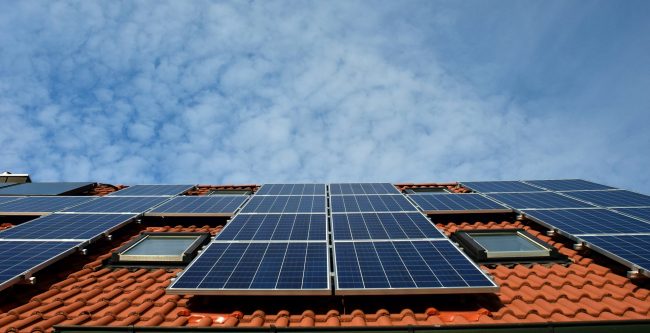
The solar market in the US experienced a 76% growth in 2012. This marked a significant increase in households that are powered by solar in the country. This is because solar panels provide a great opportunity for households to reduce the cost of energy while offering an array of benefits to individuals as well as communities. Solar installers can help you set up a solar system for your home so you can tap into a wide array of benefits including:
- Reduced energy bills
This is the biggest benefit that solar energy brings in every household that opts to shift to solar energy. If you live in a state that receives average quantity of sunshine or more, you can power your home fully using solar. Even cloudy regions receive at least two or more hours of sunshine each day. This is enough to sunshine to tap so you can power your home. Though you will generate more energy during sunny days, the solar panels you use will keep drawing energy during cloudy weather. That diffused or indirect sunshine can still help with powering your household. During spring, your solar system will be able to generate much more pore that you actually need and you can trade that extra energy for utility. During the hot summer days, you can draw energy from the grid to run your air conditioning system.
- Tax rebates and credits
Installing solar panels in your home could earn you some tax rebates. For starters, you can receive a 30% rebate on the cost of your system from installation and equipment in the form of tax cred once you file your tax returns. What this means is that you can save up to $7500 from a solar system that is priced at $25,000. If you add local and state rebates, then solar renewable energy credits, you could save up to 50% of the total cost. These credits are generated during the year and you can trade them with utility companies to generate an impressive return from your initial investment.
- Long term savings
Annually, the cost of energy relating to powering residential and transport systems runs into thousands of dollars per person. Using solar energy can help reduce or even eliminate such costs as soon as the solar system is installed because it offers long term savings as sunlight is free. On the other hand, when solar panels are installed in your home, they increase the value of the home. Many home buyers know what it means to have solar panels installed in a home since they do not have to invest in the initial installation of the system. Research shows that resale value for homes that have solar panels increase by up to $5,911 with every kilowatt installed. This means installing a solar system that produces 3.1 kilowatts could improve the value of your home by $18,000.
- Roof protection
Installation of solar panels help in protecting your roof, which extends its life span. Weather elements such as snow, rain and other forms of debris can cause the roof to weather. When solar panels are fixed on the roof, they bear the brunt of such elements thereby protecting the roof. Your home is more energy efficient during summer since the hot sun does not land directly on the roof but gets absorbed by solar panels and used to cool the house.
- Clean energy source
Solar systems produce pure, clean and renewable energy from the sun. When you choose to use solar power, you help in reducing the emissions of greenhouse gases and you also help lower dependence on fossil fuels. The conventional electricity is derived from fossil fuels like natural gas and coal. When these fuels burn, they generate electricity but at the same time, they produce harmful gases that cause climate change and air pollution. Their impact on the environment is not the only reason why fossil fuels are not good, the fact that they get exhausted with usage is another cause for concern. For this reason, the cost of power generated from fossil fuels is volatile and can spike over a short period of time.
- Better health
Solar energy can help in improving public health. Natural gas and coal plants generate water and air pollutants that can harm the health of human beings. Replacing energy from fossil fuels with that from renewable sources such as solar can help lower premature deaths and also reduce the cost of health care for people. Though solar powered systems require water to run, the quantity is not comparable to the amount of that is used to produce energy from fossil fuels. Also, production of solar energy is not adversely affected by heat waves and droughts like natural gas, coal and nuclear power whose production systems become extremely risky to run during such seasons.